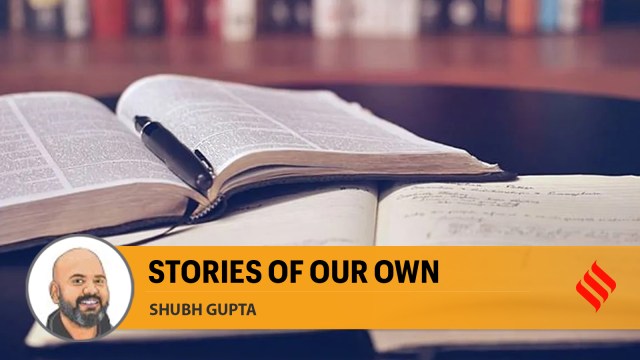
This newspaper, in its editorial (‘Home and world’, IE, July 5), criticising the changes to the literature curriculum in NCERT books, cited Robert Frost’s poem, ‘The Road Not Taken’. However, the essence of the poem is the same as what NCERT is trying to achieve. In the final stanza, Frost reflects, “with a sigh,” on how it is difficult for a person to choose between the trodden and untrodden paths. The sigh reflects the opportunity missed or gained, “that has made all the difference”.
The shift to embracing India’s rich and diverse cultural and literary heritage was the untaken road — now, Bharat aspires to know itself. It is as important to know Ramdhari Singh Dinkar — ‘Rashtrakavi’ — as it is to know Frost and Sylvia Plath. The nuances of India’s politics and society can be best understood by establishing an Indic system of knowledge rather than banking on Western frameworks. India was under foreign rule for centuries and continuously struggled for its swatva (selfhood). Post-Independence, India continued its colonial legacy. Now, Bharat is confident enough to embark on its own journey. It is only those who lack confidence in “Made in India” and seek Western legitimacy that may feel discouraged.
The new Class VI English textbook, Poorvi, developed as per the National Education Policy 2020, attempts to decolonise Indian literature. Featuring works from Indian authors like S I Farooqi and Sudha Murty, Poorvi presents students with the country’s diversity and the richness of its local context and ethos.
The editorial asserts that by excluding “international writers largely, it [the textbook] does young people a disservice — it robs them of a window to a wider world”. However, it fails to recognise that literature is not just a window to know the world. It is also a way to offer first-hand exposure to the challenges within our society. For decades, students were deprived of their own stories and restricted to cramming tales from and of unseen, unheard settings through literature. Poorvi attempts to bring in the Indian Knowledge Systems (IKS) dimensions — textual, performative and embodied through textbooks — to a Bharatiya curriculum.
The decolonisation of knowledge by promoting IKS strengthens intellectual autonomy and builds cultural capital. It will enable citizens to take on the false narratives established by Western academia about Bharat. However, the exposure to Indian literature is not exclusivist and will not hamper future engagement with global texts; instead, it will provide a solid foundation from which students can explore the world with a deeper understanding of their roots and values.
Will it be easier for students to understand society through Allen Ginsberg’s ‘Howl’ or Munshi Premchand’s Godan? For Indian students, Godan is more relevant than many foreign works as it realistically depicts the socio-economic challenges in rural India. By exposing students to local issues through literature, their critical thinking and problem-solving skills will be enhanced. The problem next door has more potential to move a person’s conscience than the problems of the next district, country or continent. No doubt, there is a “universality of emotions” but emotions are accentuated when it comes to my home, my village, district, state or nation.
This argument may raise concerns about language. An Odia poem, for instance, may not appeal as strongly to a Marathi student because of language and cultural differences. Every region must be enabled to bring in its experiences. The NCERT should focus on strengthening the SCERTs (State Councils of Educational Research and Training) to ensure varied and region-specific material for the curriculum. This will ensure multiple regions and identities participate in national identity.
It is important to reiterate that Bharat has never taken an exclusivist view of knowledge creation and dissemination. We have believed “Vade vade jayate tattvabodha” — that the articulation of diverse opinions is necessary for the emergence of truth. There needs to be a delicate balance between home and the world. Students need to be exposed to global settings through literature but not at the cost of their local contexts.
The writer is assistant professor at the Group of Adult Education, School of Social Sciences, Jawaharlal Nehru University
© The Indian Express Pvt Ltd
First uploaded on: 18-07-2024 at 06:52 IST




